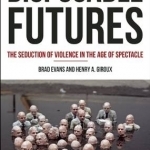1st Grade Math Learning Games
Education and Games
App
We make math fun & engaging. Over 20 Million kids use the Splash Math program to Boost Confidence,...

MSC1: Be Confident in Who You Are
Book and Education
App
Now for iPhone and iPad! • “As you prepare for back to school, don't forget the anxiety...[this...

GETApp Fradeani
Medical
App
The Guided Esthetic Treatment App is a tool designed as an easy, intuitive, user-friendly roadmap...

Disposable Futures: The Seduction of Violence in the Age of Spectacle
Brad Evans and Henry A. Giroux
Book
"This is a must-read book for anyone ready to transcend fear and imagine a new reality."--Tikkun...

Book Creator One
Education and Book
App
Keen to try Book Creator? This app allows you to create one book. Unlock unlimited books (and comic...

Explain Everything™ Classic
Education and Productivity
App
Authentic, Immediate, and Delightful. Visualize, share, and grow ideas in an infinite collaborative...

abc PocketPhonics: letter sounds & writing + first words
Education and Games
App
“PocketPhonics teaches the basics of reading and writing to young kids. Most surprising? It seems...

Homer - Kids Learn to Read App
Education and Entertainment
App
Welcome to Homer — the #1 learn to read program for kids ages 2-8, shown to increase early reading...

Kids Academy - preschool learning games for kids
Education and Games
App
Prepare your kid for success in preschool and beyond with our complete learning course for AGES 2 to...

Mathemagics - Mental Math Tricks
Education and Games
App
Amaze and delight others as you multiply, divide, and square at lightning fast speed. Learn and...
